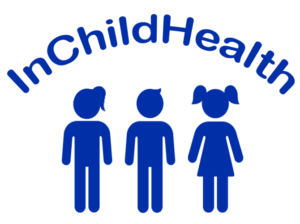Citizen Science
The InChildHealth Citizen Science activities involve pupils of the involved schools to actively participate in our research project. According to the schools’ interest, needs and curricula, there are several choices on how to participate more deeply in the project. Here some examples:
Module 1: Citizen science “indoor air ambassadors”
In this module pupils learn to understand why the quality of the air they breathe is so important and how they can positively influence it. They get insights into the way researchers work via the walkthrough exercise.
- Researchers hold a presentation that introduces pupils to different determinants of indoor air quality and how children can actively take measures to improve the air they breathe.
The presentation is amended with small hands-on activities, which are conducted by the pupils. The duration of the mini-workshop is approximately two hours, supported with educational material and prepared beforehand together with the teacher. - In addition, pupils can actively support researchers’ work in describing the school building and classrooms. They “Walkthrough” their class and describe aspects that influence the indoor air quality, like material of walls, floor and furniture, classroom size, number of windows etc. using a prepared template. The data collected will be used by researchers in their study. The duration is approx. one hour and prepared beforehand together with the teacher.
Module 2: Citizen science “bioaerosols experts”
In this module pupils engage in all research activities related to the analysis of bio particles in the indoor air. They learn how researchers work via hands-on activities that start with defining the research question, collecting and alaysing data on bioaerosols and defining measures that help to improve the indoor air quality in their classroom.
- Researchers hold a presentation on indoor air quality and involve pupils in the walkthrough (as presented above)
- During the Bioaerosol study days pupils learn to differentiate biological particles in the air (e.g. bacteria, virus and fungi) and to understand which role they play for their health. They collect samples of particles, analyse the samples and find measures to improve the air quality according to their collected data. The data collected by the pupils will be used by researchers in their study. Researchers support the whole process, prepare the equipment, conduct the activities together with the pupils and provide additional educational material to the teachers.
The activities are expected to last 10 hours all together, distributed over several days, according to the availability of teachers and pupils. The details of the timing can be discussed individually with each teacher during the preparatory phase, also specific activities around the sampling and analysis can individually be prepared according to the school’s specific needs and requirements.
Module 3: Citizen science “Air Quality PIs”
In this module pupils become the “principal investigators” of their own research study. With the support of researchers, students create an experiment to investigate if air pollution affects a health aspect. They do that by modifying (experimentally) the air pollution levels with some interventions, and then measuring if a certain health parameter changes when the air quality changes.
Students are provided with a defined research question they should help to investigate and students learn how to design the experiment to answer the research question with the help of the InChildHealth researchers.
Students learn how to set up an experiment, to collect and analyse the required data and present their insights and lessons learned.
- Researchers hold a detailed presentation on indoor air quality determinants and related health aspects.
- They involve pupils in the walkthrough (as presented above)
- Then pupils define their study: What to investigate, what to measure, how to measure, how to analyse the data etc. All these phases are supported by the scientists.
- This activity is expected to take one week overall. It will be prepared beforehand together with the teacher and supported by scientists with educational material, measurement equipment, tools for analysis of data etc.
Communication Highlights
In addition to the above-mentioned modules there are communication activities that pupils can get involved in:
- Exchange with pupils from other European schools involved in the project
- Organisation of an indoor air quality day together with other schools involved in the project in the same city
- Live online calls with researchers in other parts of Europe or insights into professional laboratories of the scientific institutions involved in the project.
